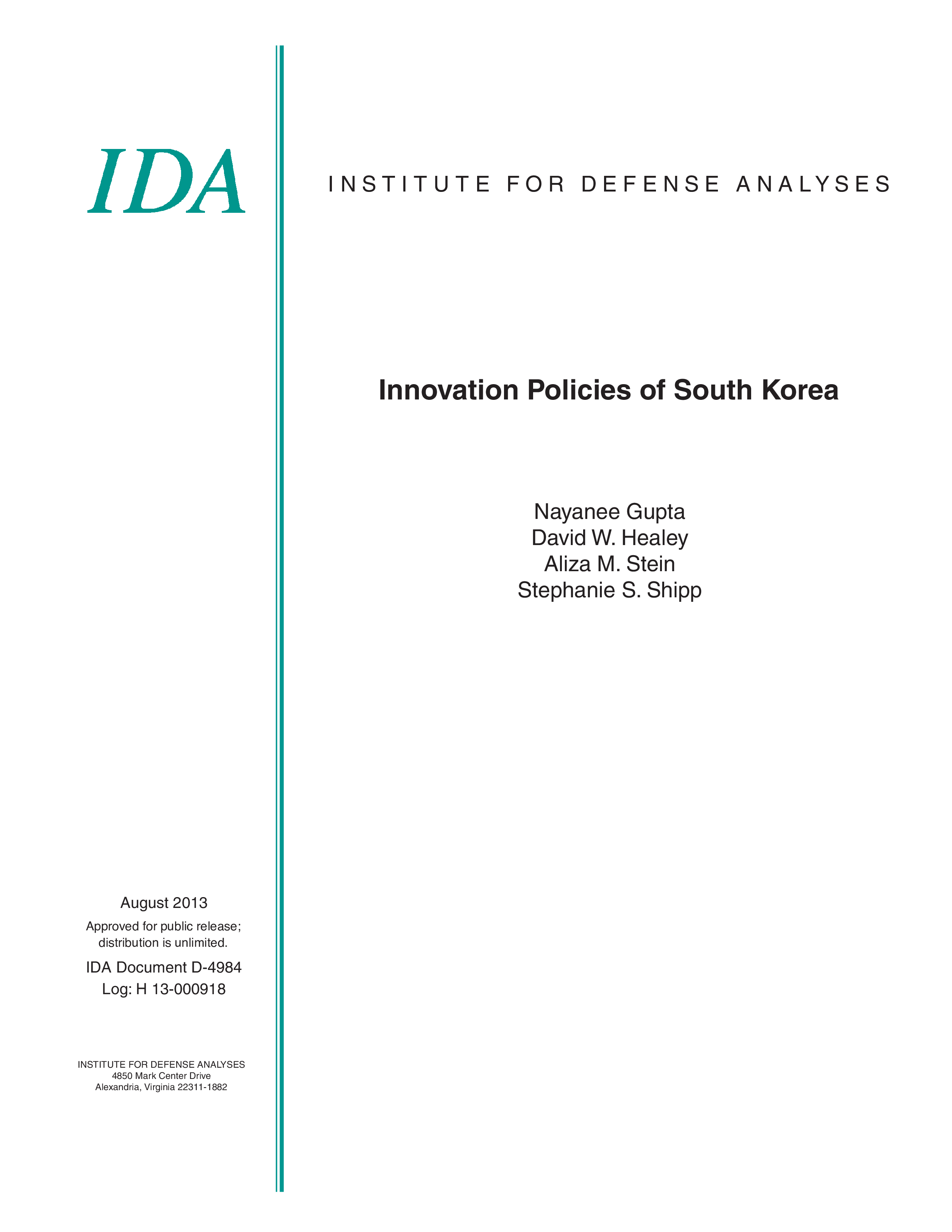Innovation Policies of South Korea
August, 2013
IDA document: D-4984
FFRDC: Science and Technology Policy Institute
Type: Documents,
Space
Authors:
IDA document: D-4984
FFRDC: Science and Technology Policy Institute
Type: Documents
Authors:
Authors
Nayanee Gupta, David W. Healey, Aliza M. Stein, Stephanie S. Shipp
See more authors

